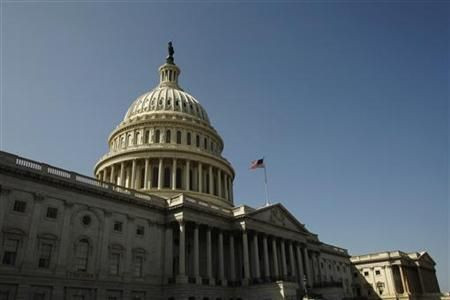The Free Market: Mankind's Natural Environment
Opinion

This world is a brutal, hostile environment. This is a simple fact, regardless of what you believe about God or humanity's origins. In this world, mankind has always had to face the fact that there are bigger, meaner creatures that are out to get us, even if those creatures are other men. In many ways, this is a direct parallel to the free market economy (especially with very few controls placed on it). A real free market economy (which we have long-since lost) is a brutal, hostile place where bigger, meaner companies are out to get us.
This comparison is one that I haven't often seen, because it isn't particularly popular to admit that competition is good for us (unless you're already at the top of the food chain), but that's what it really boils down to. Human beings are best grown in an environment where we can get hurt and where we can hurt other people. We don't thrive when we don't have the motivation to get off our sorry keisters and do things.
Our most immediate need, as people, is for survival. We need to eat and we need to sleep, preferably at regular intervals. When those needs are met, we go from a state of immediately needing to being able to interact with our world as we choose. This is a double-edged sword. First, on the positive side, this gives us the ability to shape the world to our will. The other side of the coin is that we lose some of our motivation.
For the productive side of a society, the first edge of the sword is a positive motivator. People who've had to work to survive and come out on top are motivated to build or create something; preferably something they think is good. This can be a family, a company, an organization, a career or a government. The point is, the constructive impulse is positive. At the same time, once we pass whatever personal threshold tells us that we're out of the woods, we can kick back a little, relax, and enjoy our success.
For the nonproductive side of a society (and here I'm speaking of those who aren't struggling to survive, whether those people are living in a communist country or living off the welfare of their peers in a free country), both of these positive motivations can turn negative. If a human isn't working to survive, the two edges of the sword are reversed and the first result is a loss of motivation. People stop caring or trying, either at all or as hard as they otherwise might. The other impulse, to build something, may not come into play at all, or it may be wasted on trivial (or even negative) things.
I'm sure there are plenty of exceptions to these rules, but, as with most good rules, the exceptions prove the rule. One great example is the Cold War. The United States didn't defeat the Soviet Union by force of arms or by any similar means. Our economy was stronger. Our initiative and invention were better. The basis of our society was a free market, which made our society stronger. In hindsight, the result was inevitable given the situation. (Granted if there had been a war, the result might have been different. That question is unanswerable, and it doesn't speak to the point.)
On the micro scale, similar examples are easy to find. On the list of the wealthiest men in America, how many of them came from relatively poor, uneducated roots but were still productive (or dropped out of high school) as opposed to the number who came out of the American welfare system?
Nor, as the popular myth contends, does the free market system necessarily lead to evil corporate overlords. Some of the wealthiest men of the American Industrial Revolution (Carnegie and Rockefeller come to mind) were also the most generous. The number of charities and libraries that were started by the successful businessmen of the most cutthroat era of American business is truly enormous.
This is not to say that there aren't problems with a free market system. Any system that can be abused will be. When people can get hurt, they do get hurt. Some balance is required (I am not, you'll note, a proponent of anarchy), but as our founders realized and we've forgotten, men who would remain free must appreciate that freedom. The best way to promote freedom is to provide freedom and let men taste it, but this really isn't effective (most of the time) unless those men have first seen the chains that freedom has removed from them.
One thing is certain, a being or society that lives in a free system (which this world most certainly is) will self-correct, usually painfully, when it falls too far afield of the rules put in place in the system. It's just the nature of the beast.
Jared Michaud is a freelance writer living in Wyoming.
© Copyright IBTimes 2025. All rights reserved.





















